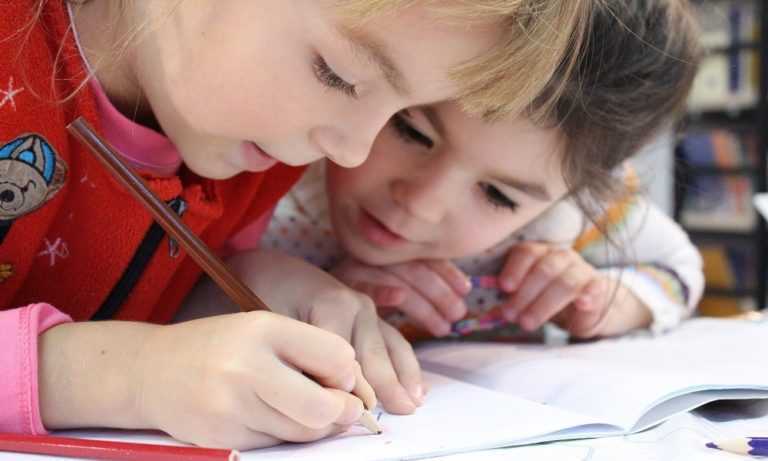In the past, educators designed academic institutes to address the economic demands of a growing industry. Taking a look at the current global economy, it appears that existing educational systems are incapable of meeting the needs of a digital world that is constantly developing. Let’s check eight problems keeping education from returning to its previous prominence.
There Is A Lack Of Parental Involvement
It is perhaps the most frustrating of all the things teachers cannot control. A teacher simply does not have enough time in the classroom to impart knowledge to every student. Some interaction must take place outside of school hours by all means necessary. However, it is no secret that students from less fortunate backgrounds often struggle in school, especially if their parents are not highly educated. But the higher-class students are no better off. Even they are at risk of parental disengagement in academics due to busy careers and overreliance on schools.
Incorrect Concepts Regarding Student Growth
A thorough attitude among students may be difficult to spot. However, it may not pose the same difficulties to another student. Since students differ in their learning styles, learning challenges can differ as well. Teachers think that intellectual activity is more valuable than other activities, which is reflected in their assigning homework every day. What are their thoughts about the physical needs of a child? Do they ponder the question, “is homework good for elementary school kids?” in terms of physical fitness? Do they contemplate how homework can incapacitate a child’s freedom? What if homework takes up a child’s time and doesn’t let them go out and have fun?
Using The Same Methods As Yesterday
In contrast to the students of the past, modern classrooms are occupied by kids who arrive with a well-rounded view of the world, shaped by more than just home life experiences. Kids arrive at kindergarten with less naivety than previous generations due to instant access to information and exposure to childcare environments from as young as six weeks old. In contrast, teachers have the same ideas and concepts they have been carrying around for generations. As a result, young minds become overburdened with ideas their minds are unable to grasp.
Overcrowded Schools Are A Problem
Individual student experiences are better when classes are smaller. Studies show that over 14% of U.S. schools are over capacity in most cases. Overcrowded classrooms are making it even more difficult to learn and harder to be a good teacher at a time when children need more attention than ever.
The Drawbacks Of Technology
Most educators advocate the use of technology in the classroom. They claim that children will be put at a disadvantage if the institute ignores the available technology as it offers advanced educational opportunities. Unfortunately, screen culture, in general, has made teaching more challenging. In many ways, learning became synonymous with entertainment. Parents download educational games as soon as kids are dexterous enough to operate a touch screen. Children learn academics both ahead of time and during their school years, so it becomes even more challenging for teachers to keep up in the classroom.
Cheating Has A Whole New Dimension Due To Technology
Dishonesty in academia is nothing new. Cheaters have been around as long as schoolwork and exams have existed. However, cheating has evolved over time. It is now easier than ever to cheat, thanks to tech devices. Modern cheating in U.S. classrooms has one interesting caveat: students do not perceive themselves as cheaters or believe they did something wrong. In fact, most parents encourage this attitude by giving in to their pleas, lifting classic punishments like “time-out” or “grounding” in response to their guilt.
As much as schools are to come up with (and regularly update) policies that prevent cheating, parents must play their required role, regardless of their input in the child’s life. They should discuss with their children appropriate ways of finding academic answers as well as unethical behaviors that appear innocent to them. Additionally, classroom teachers should remain aware of what students are doing in the classroom.
School Security Measures On Students
Whether a student is entering kindergarten or ending their college career, parents and educators would do anything to keep them safe. Nothing is too outlandish or excessive when it comes to protecting children and teenagers. Metal detectors, security cameras, increased police presence in school halls, and locked gates all contribute towards protecting educators and students.
Even putting emotions aside, however, how much does school security actually increase safety? Can school security really impair education? It sounds good to tout the virtues of stricter school policies, but are they just empty words? How much should schools spend on security if state funding per student has fallen? Apart from that, personal vigilance may also be the best investment for students and educators.
It is well known that some of these reasons have been around for a long time. In contrast, some other challenges, like the development of screen cultures, are unexpected. However, neither the issue’s nature nor its context matters. What matters is that, unless addressed, all these challenges are impeding our ability to compete globally.



Comments are closed.